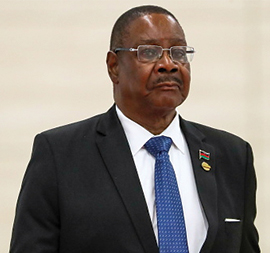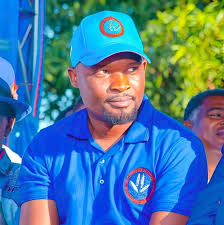The Democratic Progressive Party (DPP) has resurrected its eternal squabbles, grappling with significant internal unrest over who must be named the running mate for the upcoming 2025 presidential election.
With former President Arthur Peter Mutharika (APM) poised to be the torchbearer, concerns about his age and health are causing anxiety among party officials regarding the implications of selecting an outsider for the vice presidential position.
At nearly 89 years old, Mutharika has been endorsed as the DPP’s candidate during the party’s convention. However, fears surrounding his potential incapacitation are prompting discussions about the implications of choosing a running mate from outside the party: “While APM is seen as the only candidate who can unify the DPP’s factions, people are concerned with the reality of his age,” confided a senior DPP official who requested anonymity.
The source further disclosed that Mutharika’s game plan is to pick Kabambe as running mate, but that will depend on him winning UTM leadership at the upcoming convention. “If Kabambe wins at the UTM convention”, the source said, “then almost every senior member in the party knows that there will be no question on whom APM will pick for a running mate because UTM will merge with DPP through coalition”.
Shire Times understands that Mutharika, who is related to Kabambe has made it clear to his close officials that they must do everything possible to assist Kabambe win UTM elections including donating people who will pose as southern region delegates for the UTM.
A fallback plan, however, is to choose between the Alliance for Democracy (Aford) president Enoch Chihana and DPP’s Vice President for the central region, Alfred Gangata. It is these two names that has sparked reservation from DPP conservatives who hold the idea that trusting outsiders would be a non-repentant gamble which would be costlier than ever.
The internal debate is polarized, with some party insiders advocating for a stable choice from within DPP’s ranks while others are open to forging a strategic alliance with an external candidate. Sources indicate that some senior officials believe selecting a vice presidential candidate from another party could broaden DPP’s support base, particularly as the party aims to reclaim power in the wake of waning popularity.
However, strong opposition to this idea remains. Many warn that choosing a running mate from outside could present a significant risk, potentially eroding the party’s influence, especially if Mutharika is unable to fulfill his presidential duties should he be elected: “A running mate from another party would be a ticking time bomb,” one source asserted. “We witnessed the fallout after the death of President Bingu wa Mutharika in 2012, when Vice President Joyce Banda, who had created her own party, took power and we suffered instability with a conflict between the President and Chilima in the run-up to 2019. Many are of the view that we do not want a repeat of that experience,” disclosed the source to Shire Times.
Political analysts note that the DPP’s concerns are well-founded, given Malawi’s historical challenges with coalitions and power-sharing arrangements that often lead to intra-party rivalries. “The fear is valid and not unfounded,” said Dr. John Chikweza, a political analyst. “There is always the risk that a vice president from another political faction may attempt to take over if the president is incapacitated.”
Dr. Martha Nyirenda, a governance expert, added that the DPP finds itself in a precarious position. “If they choose a candidate from outside, they risk internal cohesion. Conversely, selecting an unpopular candidate from within could alienate pivotal swing voters who they desperately need for victory in 2025.”
As the DPP’s executive committee remains deadlocked, key figures are advocating for a youthful candidate capable of refreshing APM’s image and restoring the party’s appeal. However, party elders caution that even a consolidated internal choice may not sufficiently address concerns over the implications of Mutharika’s potential absence from the presidency.













